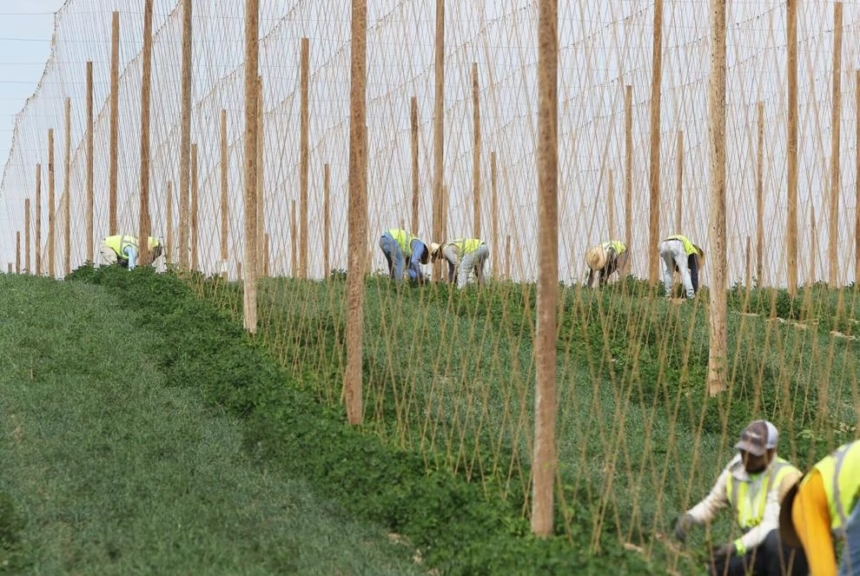SACRAMENTO, California – The Golden State’s agricultural industry, which serves as the backbone of America’s food production, is bracing for potential workforce disruption as Donald Trump prepares to return to the White House.
Despite Trump’s assurances to address water accessibility issues in California, his strong stance on mass deportation of unauthorized immigrants poses a direct threat to the agricultural labor force that keeps the state’s farms operational.
California’s farming community, responsible for producing 50% of the nation’s fruits and vegetables, initially backed Trump during the November election, attracted by his commitment to resolve water scarcity issues in the predominantly conservative Central Valley region. However, their early support has given way to mounting anxiety regarding Trump’s immigration agenda, which could affect undocumented workers who constitute over half of the state’s agricultural workforce.
“The ramifications for California will be profound,” states Chris Reardon, policy advocacy vice president at the California Farm Bureau Federation. While maintaining discretion about his political preferences, Reardon acknowledges increased communication from farmers concerned about their workers’ status. His consistent response remains: “The situation is still unclear.”
The appointment of immigration hardliners like Thomas Homan as “border czar” has heightened these apprehensions. Trump’s determination to expedite deportations through executive actions designed to circumvent legal resistance has prompted industry leaders such as Dave Puglia, Western Growers Association’s CEO, to express serious concerns, as reported by Politico.
Implementing widespread farmworker deportations would encounter substantial practical and legal challenges. California’s legal authorities, under Attorney General Rob Bonta’s leadership, are preparing legal countermeasures. According to Homan, initial deportation efforts will target undocumented individuals with serious criminal backgrounds. Puglia suggested this approach might find more acceptance within agricultural circles, though uncertainties persist.
During his previous term, Trump expressed intentions to protect food industry workers, yet his administration conducted immigration raids at Mississippi poultry facilities and Nebraska produce packing plants. The extent of deportations under Trump’s new administration will significantly influence California farmers’ operational sustainability.
Agricultural leaders are intensifying their political outreach, working to build stronger connections with Trump’s team, particularly with Agriculture Secretary Brooke Rollins. Simultaneously, they’re attempting to resurrect a 2019 bipartisan initiative that proposed establishing temporary agricultural visas and citizenship pathways for long-term undocumented workers.
John Duarte, a Republican farmer and former Central Valley representative who supported the legislation, recently lost his re-election bid. Nevertheless, sources indicate he’s seeking a position within the Trump administration focusing on water or natural resource management.
Agricultural leaders anticipate a potential rollback of worker protections established during Biden’s presidency within the H2-A program framework. Puglia advocates for streamlining and expanding the program to tackle existing workforce shortages.
While agricultural officials concentrate on legislative measures, worker advocacy groups remain focused on safeguarding farmworker rights. Antonio De Loera, serving as the communications director for United Farm Workers, stresses the vital importance of protecting the rights of existing workers who have sustained the industry across generations.”Any proposed initiative must prioritize the wellbeing of our current workforce,” De Loera emphasized. He expressed criticism toward proposals aimed at expanding temporary visa programs, describing them as exploitative.
De Loera pointed out that even without implementing mass deportations, Trump’s rhetoric has generated an atmosphere of apprehension among workers, potentially deterring them from reporting workplace safety issues or labor law violations.”Our primary focus remains ensuring workers feel secure and empowered, rather than feeling compelled to accept unsafe working conditions,” he stated as reported by Politico.
You can read the article published by Politico by clicking here.







